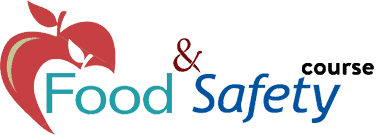By signing up for Food Safety Training in Ottawa, a food service worker is taking the first steps into becoming a fully-fledged certified worker. In Ottawa, the law regulates all food facilities – meaning operators of places where food is handled and either served or sold (regardless of price or charge of the product) are required to have members of the staff trained (and some certified) in food safety and sanitation.
Enrollment is hassle-free and quick on our website. The site has a form (filled up online!) for enrollment, as well as our contact details and more information on currently available classes. We encouraged prospective students to contact us via e-mail or telephone call. Visit us in person and our staff will be glad to help you!
Food Safety Training in Ottawa offers a Program
One of Ottawa First Aid’s many courses is food safety and sanitation. It is a single-day course, eight-hours long (roughly), with the certification exam set during a different day. We offer two learning options to students – either a (1) classroom-based approach or (2) a self-study approach. The more expensive route is the classroom-type course, because this is the typical eight-hour course in a classroom and laboratory set-up. Self-study is, of course, much cheaper because students only need to buy the workbook and choose the date for the certification exam. However, self-study entails that the student learns the material at their own time, without the guidance of our trainers.
Food Safety Curriculum
Food safety training is focused on the following concepts and their associated techniques and skills. We are able to train our students in both classroom and laboratory set-ups, the former for lessons and the latter for actual and return demonstrations.
- The health unit’s role in food safety.
- Basic bacteriology.
- Foodborne illness prevention and management.
- Personnel hygiene and health.
- Emergency response skills.
- Housekeeping – sanitation and pest control.
Foodborne Illness in Canada
In the world, more than two million people die because of diarrheal complications. An estimated 4.5 million Canadians are affected annually by foodborne illness (FBI). Despite FBIs being very easy to prevent, so many cases are still registered each year. However, because most conditions are self-limiting, meaning they resolve in as early as three days, a lot of cases are not reported to the local health authorities. This makes getting statistics on the condition very difficult, hindering the formulation of a complete management plan for FBI prevention.
When people ingest contaminated food, they are at great risk for getting a foodborne infection (poisoning, if chemicals were ingested instead). The most common microorganisms that contaminate food and cause FBIs are (1) Norovirus, (2) Campylobacter, (3) Clostridium perfringens, (4) Salmonella, and (5) Staphylococcus aureus.
During proper (safe) food handling, the risk of these microorganisms ending up on food becomes very low to zero. The handling process should be safe, starting from raw produce, meat, and poultry (and other products) being brought into the facility to the selling or serving of the final product. It does matter if the final product is sold/served for a price (or without a price).
